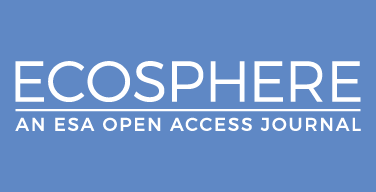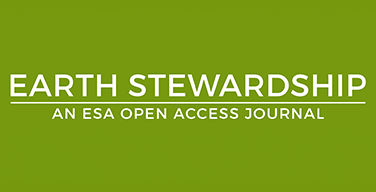
Tiny sea slug could have a big impact on successful coastal conservation efforts
New study finds Phyllaplysia taylori is an outsize climate-resilient ally for coastal ecosystems.

New study finds Phyllaplysia taylori is an outsize climate-resilient ally for coastal ecosystems.

A new study using the largest network of microphones to track birds in the U.S. is providing crucial insights for managing and restoring fire-prone forests across California’s Sierra Nevada region.

Researchers have uncovered a critical link between rising temperatures and declines in a species’ population, shedding new light on how global warming threatens natural ecosystems.

Syracuse University student Eva Legge receives ESA’s Graduate Student Policy Award, SAF’s Visiting Scholar Award and an NSF Graduate Student Research Fellowship.

The award provides graduate students with science policy training and the opportunity to meet with congressional policymakers on Capitol Hill.

How beetles make wood more burnable, the impact of nighttime illumination on animals and more from ESA’s journals.

A new study shows that the replacement of wild herbivores with domestic grazers can drastically influence the numbers of ground-dwelling arthropods like spiders, as well as disease-carrying animals like ticks and mites.

A new study highlights how animals unintentionally document our environmental problems.

New research from Japan’s Mt. Norikura shows that birds breeding at high elevations rely on insects that originate downslope.

A new study describes botanical collections that have been made over the last approximately 185 years in New Mexico, finding gaps in our understanding of the state’s biodiversity.

A pathogen for bird pink eye remains viable on bird feeders in winter conditions much longer than in summer conditions, according to a recent study.

Researchers used motion-triggered cameras to record the predation for the first time.

This prestigious scholarship program celebrates and supports outstanding early- to mid-career Ph.D. ecologists from groups traditionally underrepresented in the scientific community.

New research shows how herbivores like sea snails can promote the spread of seagrass wasting disease.

The discovery enriches our knowledge of plant longevity and highlights the importance of continuing to explore the most extreme ecosystems.

A stick insect mates but still reproduces asexually — implying evolution has erased sex forever in this species.

The Ecological Society of America’s newest journal, Earth Stewardship, publishes interdisciplinary scholarship addressing the major socio-environmental challenges of our time.

Scientists have released the most comprehensive database of species living in the ice-free areas of Antarctica

The study finds that hunting can be an effective form of disease control when enacted consistently at high levels over many years.

Researchers are calling the outbreak an “extremely violent global pandemic.”
Notifications